
Introduction
Undoubtedly, the seas are vital for states in terms of economic and commercial interests, as well as national security and defense needs. Throughout the ages, shipping by sea has been one of the main elements of international trade. In this context, the security of maritime routes was of great importance to all states and played a decisive role in the foreign policies of states. Especially for coastal countries, naval power often requires a strong security and defense policy. These countries' strong land forces were not enough to ensure their security. Countries incapable of keeping the surrounding seas under control sometimes suffered heavy territorial losses and paid a heavy price. For example, due to territorial loss, ethnic groups had to leave the lands where they lived for years and migrate to the countries they considered their homeland, causing severe human suffering and causing the countries experiencing territorial loss to face significant economic and political problems.
In this context, the problems experienced by the Ottoman Empire with Greece in losing the Eastern Aegean islands and Crete and the painful experiences during the Balkan wars of 1912-1913 constitute a striking example of the issues we have mentioned above.
The Road to the 1912-1913 Balkan Wars
In the Balkan Wars of 1912-1913, the Ottoman Empire lost almost all of its European territories. These wars had a decisive impact on the disintegration and eventual collapse of the Ottoman Empire. A strong naval force played an important role in Greece's territorial gains during the Balkan wars. Before examining this issue, it is helpful to briefly remember the developments before the Balkan Wars and the process of establishing a Balkan Alliance against the Ottoman Empire,
According to the evaluations of Barbara Jelovich, an expert academician on Balkan history, two critical diplomatic alliances regarding the Balkans were formed in the early twentieth century. The first was the Triple Alliance between Germany, Austria, Hungary, and Italy. The second alliance included Russia and France. Britain initially chose not to participate in these alliances. However, she later negotiated with France and Russia in 1904 and 1907 to resolve colonial disputes. These agreements resulted in the loosely structured diplomatic combination of Britain-France-Russia known as the Triple Entente. This structure became effective in the Balkans with its interventions in the 1897 Ottoman-Greek war and the Greek rebellion in Crete.
Meanwhile, the status of the Ottoman Balkan lands had also become a matter of debate. Diplomats began bargaining, so to speak, over Ottoman territories. In October 1909, Italy and Russia came together and agreed on their shared regional interests. Within the framework of this understanding, Italy started a war with the Ottoman Empire over Tripoli in 1911. On the other hand, Russia began to follow a policy that encouraged the Balkan states to start negotiations to form an alliance. With active diplomatic assistance from Russia, the Balkan governments signed a number of agreements. They formed war alliances against the Ottoman Empire. The first agreement was made between Bulgaria and Serbia in March 1912. Bulgarian representatives at these negotiations supported the creation of an autonomous Macedonian state with the expectation that it would eventually join Bulgaria. Serbia, on the contrary, wanted a partition arrangement.
For this reason, there was no agreement on the sharing of Macedonia. And it was agreed that Russia would mediate. It was also decided that Bulgaria would provide 200,000 soldiers and Serbia 150,000 in the future war with the Ottoman Empire. In May 1912, Greece and Bulgaria made a similar agreement. The territorial provision was not included in this agreement. In October, Montenegro signed agreements with Serbia and Bulgaria. The Balkan states were thus organized for war. Although the great powers were worried about these developments and tried to intervene ineffectively and perfunctory at the last moment, they failed. Montenegro attacked the Ottoman Empire and was immediately joined by its Balkan allies. Thus, Greece, Bulgaria, Serbia, and Montenegro joined a Balkan alliance for the first time and declared war against the Ottoman Empire.[1]
The Role of the Greek Navy in the Balkan Wars
The following points regarding the preparations for Greece's participation in the Balkan War, included in a book published in 1914, reveal how much Greece relied on the power of its naval forces to participate in the Balkan wars:
"A meeting was held at Sofia some weeks before the outbreak of the war, at which M. Gueschoff and the Servian, Montenegrin, and Greek Ministers were present. The discussion turned upon the numbers of the forces which each of the allies would be able to place in the field against Turkey. M. Gueschoff stated that Bulgaria could supply 400,000, the Servian Minister answered for 200,000, and the Montenegrin representative for 50,000. Thereupon they all turned towards M. Panas, the Greek Minister; he said, 'Greece can supply 600,000 men.' They all looked at him with amazement, if not incredulity written upon their faces, and asked him how that was possible. He replied, 'We can place an army of 200,000 men in the field, and then our fleet will stop about 400,000 men being landed by Turkey upon the southern coast of Thrace and Macedonia, between Salonica and Gallipoli! 'Se non e vero e ben trovato (If it is not true it is well found.) The story, in the opinion of the writer, makes a true point. It cannot be contended that if Greece had not the command of the sea Turkey would have been able to land as many as 400,000 of her Asiatic troops in the few weeks which preceded the signing of the armistice. In view, however, of the shipping which Turkey had at her disposal, she should have been able to land some 2,000 troops a day; so that at least 150,000 men might well have been ready in Thrace within ten weeks. The strengthening of the Turkish forces in Thrace would almost certainly have placed the Turks in such a position that they would not have wanted to sign an armistice when they did, and within about six months at the outside the figure of 400,000 would have been reached."[2]
In diverse books written by Western academics about the Balkan Wars, it is reported that only Greece had a strong navy among the members of the Balkan Union. As per these academics, "the Greek Navy had two main tasks in the war. The first was to guard the mouth of the Dardanelles to prevent Ottoman shipping in the Aegean and Adriatic Seas. This was important as it would prevent the Ottomans from reinforcing and resupplying their European forces. The other task was to occupy the Aegean islands belonging to the Ottoman Empire." [3] It is also stated in these works that the Greek Navy not only maintained a very effective blockade but also took possession of all the Aegean Islands under Turkish rule, except Rhodes and the Dodecanese, which Italy held. According to these academicians, "the Greek navy was sufficient not only to terrorize the Turkish navy, which it reduced to complete impotence, but also to paralyze Turkish trade and commerce with the outside world, to embarrass railway transportation within the Empire, to prevent the sending of reinforcements to Macedonia or the Aegean coast of Thrace, and to detach from Turkey those Aegean Islands over which she still exercised effective jurisdiction."[4]
The backbone of the Greek Navy at that time was the heavy cruiser, Averof. The battleship "Georgios Averof" was designed by Giussepe Orlando in 1905. The ship was built in the Livirno Orlando shipyards in Italy between 1908 and 1911. At that time, the same shipyard designed "Averof" and two more armored warships named "Piza" and "San Antonio" for the Italian Navy. Italy purchased the first two ships but gave up purchasing the third ship for financial reasons. In 1909, the Orlando shipyard made an offer to the Ottoman Empire to sell this third ship. The Ottoman administration, wishing to strengthen the Navy, wanted to purchase the battleship but hesitated due to economic difficulties. Thereupon, the Orlando shipyard offered the battleship to Greece. However, Greece decided that it could not purchase the ship due to financial reasons. The George Averof Foundation [5] , which was informed that such an offer had been made to Greece, made a grant to the Greek State to purchase the ship, provided that it was named Averof.[6] Thanks to this grant, Greece was able to make its naval forces very strong.
The following information given by Retired Admiral Afif Büyüktuğrul in an article about the discussions held at the Ottoman Parliament at that time regarding the purchase of the battleship Averof by the Ottoman Empire contains instructive information for today:
"There were details in the Ottoman-Greek naval arms race: While the Greek government had reached a consensus on strengthening the Navy, the Ottoman side was in a polemic about the Navy or the Railway. The Minister of Naval Affairs had been changed nine times in two years, as opposed to a single Minister of War in the Ottoman government. The majority of these Naval Ministers, as if this duty were an additional duty, was chosen from among the corps commanders serving under the command of the Minister of War. Of course, this was a factor that delayed the construction of the Navy. The political situation with Greece had become so tense that it was necessary to purchase ready-made warships quickly. However, there were no ships for sale in Europe or America. Finally, the navy personnel found an armored cruiser that was about to be completed in Italy and brought its purchase to the Parliament. However, the Minister of Foreign Affairs was going to take the podium and say, 'The Greeks are bluffing; they can neither declare war nor buy this ship.' When the Minister of Finance supported him, the purchase of this ship was abandoned. This Minister of Foreign Affairs was the same minister who stood at the same podium during the Balkan War and said, "the sailors fought unserious way." He both prevented the strengthening of the naval forces and exposed the sailors to unfair accusations." [7]
As stated above, Greece's strategy in the Aegean Sea during the Balkan wars was to block the Dardanelles, cut off the sea supply routes of the Ottoman Empire, and occupy the Aegean islands. In the Aegean Sea part of the war, Greece successfully implemented this strategy within the framework of an attack plan. In this context, the Greek Navy left the port of Piraeus on October 18, 1912, occupied the islands of Lemnos on October 21, Thasos on October 31, Samothrace on November 1, Psara on November 4, Nikaria on November 17, Mytilene on November 21 and Chios on November 24. According to doyen historian/Ambassador Bilal Şimşir, while the Greek Navy was capturing the Ottoman Aegean islands one by one, the Ottoman Navy was lingering in the Black Sea, bombarding Varna. It did not attempt to cross the Aegean Sea. The Ottoman Navy returned to the Aegean only after the armistice with Bulgaria. On December 16, 1912, the Turkish and Greek navies faced each other in front of Gökçeada (Imroz) for the first time. The Ottoman Navy failed in this battle against the superior maneuverability and firepower of the Averof battleship and returned to Çanakkale. The two navies faced each other again before Mudros on January 18, 1913. The Ottoman Navy suffered an even more severe defeat in this battle.[8]
As this brief information reveals, the Ottoman Empire de facto lost the Eastern Aegean Islands in approximately three weeks due to the weakness of its Navy and inadequate management.
Conclusion
Undoubtedly, the weakness of the Ottoman naval power played an important, if not decisive, role in the loss of the Balkan wars. Due to the weakness of the Ottoman naval power, Greek dominance in the Aegean Sea gradually grew stronger after that period. While evaluating these issues, doyen historian/Ambassador Şimşir states that Greece maintained its naval superiority thanks to the USA and Britain, which have been helping her with donations for years. Şimşir states that this superiority was balanced when Türkiye started to search for oil in the Aegean with the support of its Navy on May 30, 1974. He also states that the superiority of the Greek Navy in the Aegean Sea largely ended with the Cyprus Peace Operation carried out in the same period and draws attention to the following evaluation published in the Economist magazine:
"For the first time since 1912, when Admiral Koundouriotis drove the Turkish fleet into the Dardanelles with the battleship Averof, Turkey is challenging Greece's supremacy in the Aegean." [9]
The Greeks and the imperialist states that provoked them describe the victories of the Turkish Army on the path to the establishment of the Republic of Türkiye, starting from 1919, and the great defeat suffered by Greece when she attempted to invade Anatolia, as "the Asia Minor Catastrophe." The event that they call the great disaster is the very disaster that the "Megali Idea"brought them. It results from pursuing dreams far beyond their power and embarking on adventures with the encouragement and support of imperialist states in the first quarter of the twentieth century.
In this context, the following point must always be taken into consideration: Greece is a country that aspired to become an empire in the age of national states and made her aim of significant expansion a state policy. She has a state structure that has internalized the Megali Idea. Towards this end, she always tried to corner Türkiye by securing the backing of the powerful states or groups of states of the period. She never gave up her grandiose claims and has spread its goals over time through fait accomplish in the Aegean Sea and the Eastern Mediterranean. She has successfully employed "Fabian tactics"[10] during the temporary détente periods. The "zero-sum game" policies she implements essentially reflect an "offensive neorealist" political approach. We can say that Türkiye has responded to this approach with "counter-offensive neorealist" policies since 1974, especially by strengthening its naval power.[11]
It is observed that there are discussions, sometimes including criticism, in a certain section of the public regarding the studies carried out on strengthening the Turkish Naval Forces, the financial resources allocated for this purpose, thought exercises aimed at deepening Türkiye's maritime strategy, and the doctrines being developed. In this connection, we deem it useful to remember the following assessment made by the doyen historian/Ambassador Bilal Şimşir in 1976 regarding the importance of Turkish naval power:
"The Aegean problem cannot be considered separately from naval power. Naval power is one of the most crucial factors in the fate of the Aegean. It has always been so. What happened in the Balkan wars is the most striking example of this. Greek revolutionaries confronted the Ottoman Empire with a naval fleet. The new map of Greece was drawn at sea. Greece was born as a maritime state. The Ottoman fleet was destroyed at Navarino. It must be put to an end to such weaknesses." [12]
Türkiye should continue to be realistic in its well-intentioned efforts to find solutions to the Aegean problems, should not allow its well-intentioned efforts to be abused, should continue to respond to essentially offensive neorealist policies with counter-offensive neorealist policies, and should pay utmost attention to "Fabian tactics."
*Picture: NTV
[1] Barbara Jelavich, History of the Balkans: Twentieth Century, vol. 2 (Cambridge: Cambridge University Press, 1983), 95-97.
[2] Demetrius John Cassavetti, Hellas and the Balkan Wars: With an Introduction by the Hon. W. Pember Reeves. With 10 Maps and 74 Illustrations (London, Leipsic: T. Fisher Unwin, 1914), 26 ; E. R. Hooton, Prelude to the First World War: The Balkan Wars, 1912-1913 (London and New York: Routledge, 2014), 17.
[3] E. R. Hooton, Prelude to the First World War: The Balkan Wars, 1912-1913 (London and New York: Routledge, 2014), 17.
[4] Jacob Gould Schurman, The Balkan Wars: 1912-1913, 3rd ed. ([Place of publication not identified]: The Floating Press, 2009), 65.
[5] Georgios Averof (Georgios Avyeros-Apostolakis) was born in Metsovo (Epirus) in 1818. Metsovo (Machiova in the Epirus-Ottoman Period - Aminciu in Vlach language) was a district of the Sanjak of Yanya during the Ottoman period, where mostly Vlachs lived in western Greece. According to New York Times report of August 4, 1899. George Averof was born in Metsova, near Ioannina (Yanya), and started working in his uncle's company in Moscow at the age of 17. After his uncle's death, he inherited his uncle’s rich inheritance. He became rich in a short time as a result of meeting the needs of the Russian army during the Crimean War and later worked as a banker in Alexandria. George Averof, who never married, donated his assets to the Greek navy after his death. One of the most important aids of Averof, who made many donations, was the stadium built for Olympic Games in Athens for the first Olympics held in 1896. Averof, who is said to have contributed more than $7,500,000 in charitable activities, died in Alexandria on August 3, 1899, at the age of 70; George Averoff Dead; He Had Expended More Than $7,500,000 in Charities," New York Times, August 4, 1899, https://www.nytimes.com/1899/08/04/archives/george-averoff-dead-he-had-expended-more-than-7500000-in-charities.html.
[6] Necmi Odabaşı, "Yunan Zırhlısı Averof’un Osmanlı Donanması Ve Ekonomisi Üzerindeki Etkileri," U.Ü. Fen-Edebiyat Fakültesi Sosyal Bilimler Dergisi 18, no. 29 (2015/2); Maria Vasilikiotou (Meryem Batan), "Savaşta Ve Barışta Bir Yunan Gemisi: Averof-Yunan Kaynakları Üzerinden Bir Analiz," Ankara Anadolu Ve Rumeli Araştırmaları Dergisi.
[7] Afif Büyüktuğrul, "Osmanlı (Türk) - Yunan Deniz Silahlanma Yarışı," Belleten 39, no. 156 (October 1975): 725-774, here 736-737.
[8] Bilal Şimşir, Ege Sorunu (Aegean Question): Belgeler (Documents), vol. 1 (1912-1913), LIII-LIV.
[9] Bilal Şimşir, Ege Sorunu, p. LV.
[10] "Fabian tactics", in the style of the ancient Roman general Fabius, are to wear down the opponent by delaying and evading rather than confronting it head-on, trying to gain time to achieve the goal.
[11] John J. Mearsheimer, The Tragedy of Great Power Politics (New York & London: W. W. Norton & Company, 2001), 22. Mearsheimer proposes that in offensive realism states aim “all they can get” and intent to “maximize relative power, with hegemony as their ultimate goal.”
[12] Bilal Şimşir. Ege Sorunu, p. XXXIX.
© 2009-2025 Center for Eurasian Studies (AVİM) All Rights Reserved
No comments yet.
-
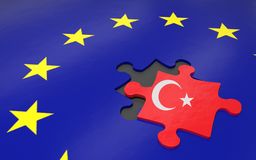 EP TURKEY RAPPORTEUR PIRI CONFIRMS WHAT HAD ALWAYS BEEN SUSPECTED: “EVEN IF TURKEY WERE A PERFECT DEMOCRACY, MERKEL AND […] SARKOZY WOULD NOT WANT TURKEY IN THE EU”
EP TURKEY RAPPORTEUR PIRI CONFIRMS WHAT HAD ALWAYS BEEN SUSPECTED: “EVEN IF TURKEY WERE A PERFECT DEMOCRACY, MERKEL AND […] SARKOZY WOULD NOT WANT TURKEY IN THE EU”
Teoman Ertuğrul TULUN 04.04.2019 -
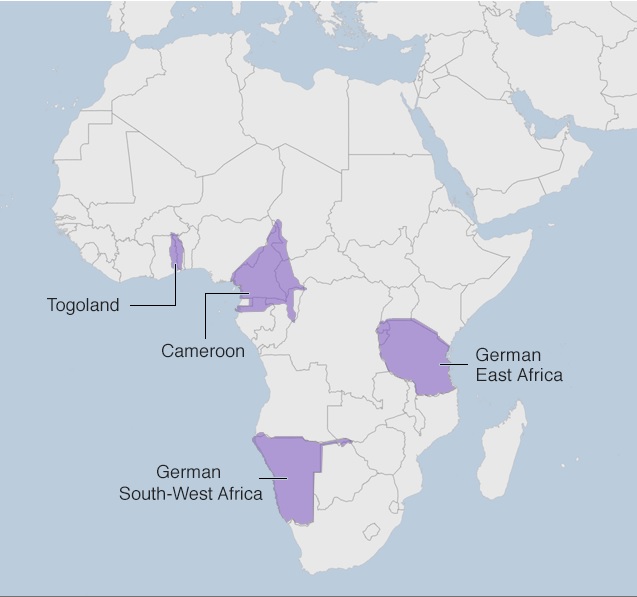 GERMAN COLONIAL LEGACY: TANZANIA AND THE HUMBOLDT FORUM
GERMAN COLONIAL LEGACY: TANZANIA AND THE HUMBOLDT FORUM
Teoman Ertuğrul TULUN 01.02.2021 -
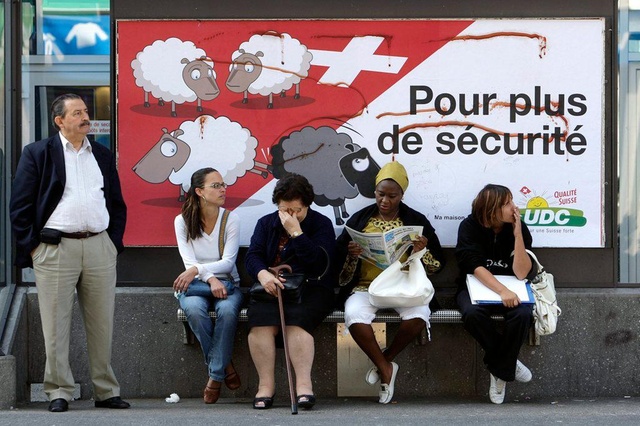 THE INTERSECTION OF CONTEMPORARY XENOPHOBIA AND RACISM IN WESTERN EUROPE: THE CASE OF SWITZERLAND
THE INTERSECTION OF CONTEMPORARY XENOPHOBIA AND RACISM IN WESTERN EUROPE: THE CASE OF SWITZERLAND
Teoman Ertuğrul TULUN 24.03.2020 -
 THE DARKNESS BEYOND WIKIPEDIA'S EXPOSED FACE: EXAMINING ITS ROLE IN INFORMATION MANIPULATION
THE DARKNESS BEYOND WIKIPEDIA'S EXPOSED FACE: EXAMINING ITS ROLE IN INFORMATION MANIPULATION
Teoman Ertuğrul TULUN 22.04.2024 -
 REASSESSING ARMENIA’S CONSTITUTIONAL ALIGNMENT WITH INTERNATIONAL NORMS
REASSESSING ARMENIA’S CONSTITUTIONAL ALIGNMENT WITH INTERNATIONAL NORMS
Teoman Ertuğrul TULUN 20.09.2024
-
 CHANGING PERCEPTIONS: THE EUROPEAN UNION INSTITUTE AND TÜRKİYE'S ROLE IN EU SECURITY POLICY
CHANGING PERCEPTIONS: THE EUROPEAN UNION INSTITUTE AND TÜRKİYE'S ROLE IN EU SECURITY POLICY
Teoman Ertuğrul TULUN 26.06.2024 -
 THE KARABAKH CONFLICT AND THE LAWFARE OF ARMENIA: ARMENIA’S CAMPAIGN FOR REMEDIAL SECESSION (I)
THE KARABAKH CONFLICT AND THE LAWFARE OF ARMENIA: ARMENIA’S CAMPAIGN FOR REMEDIAL SECESSION (I)
Turgut Kerem TUNCEL 27.10.2020 -
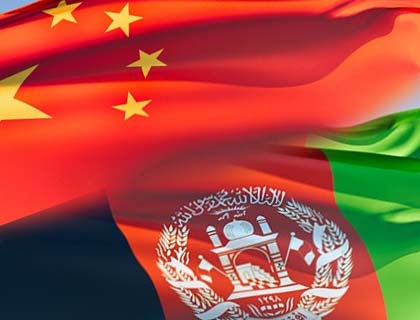 CHINA IN AFGHANISTAN
CHINA IN AFGHANISTAN
Özge Nur ÖĞÜTCÜ 18.05.2017 -
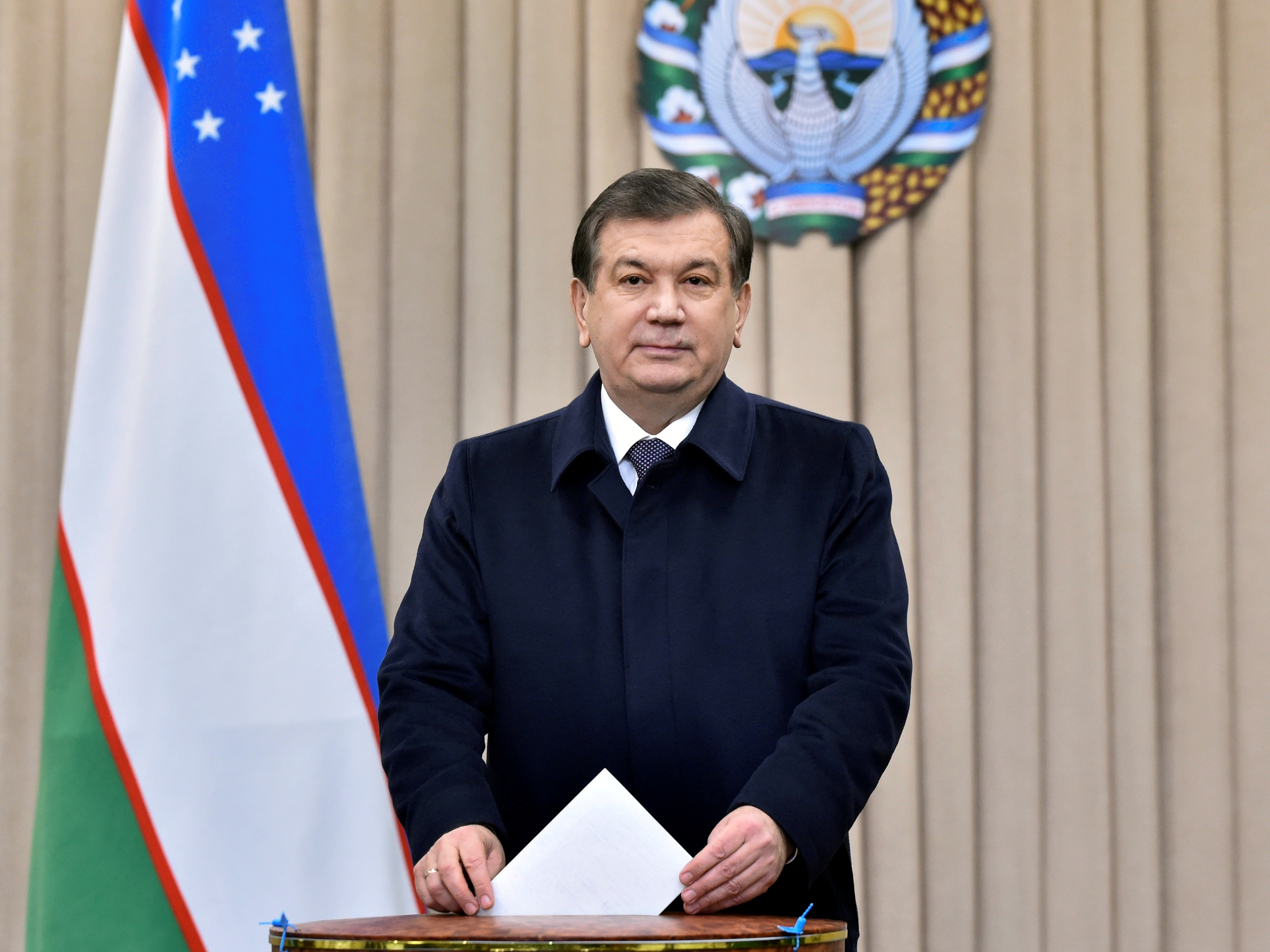 UZBEKISTAN’S REGIONAL POLICIES UNDER NEW PRESIDENT: A NEW ERA?
UZBEKISTAN’S REGIONAL POLICIES UNDER NEW PRESIDENT: A NEW ERA?
Özge Nur ÖĞÜTCÜ 18.08.2017 -
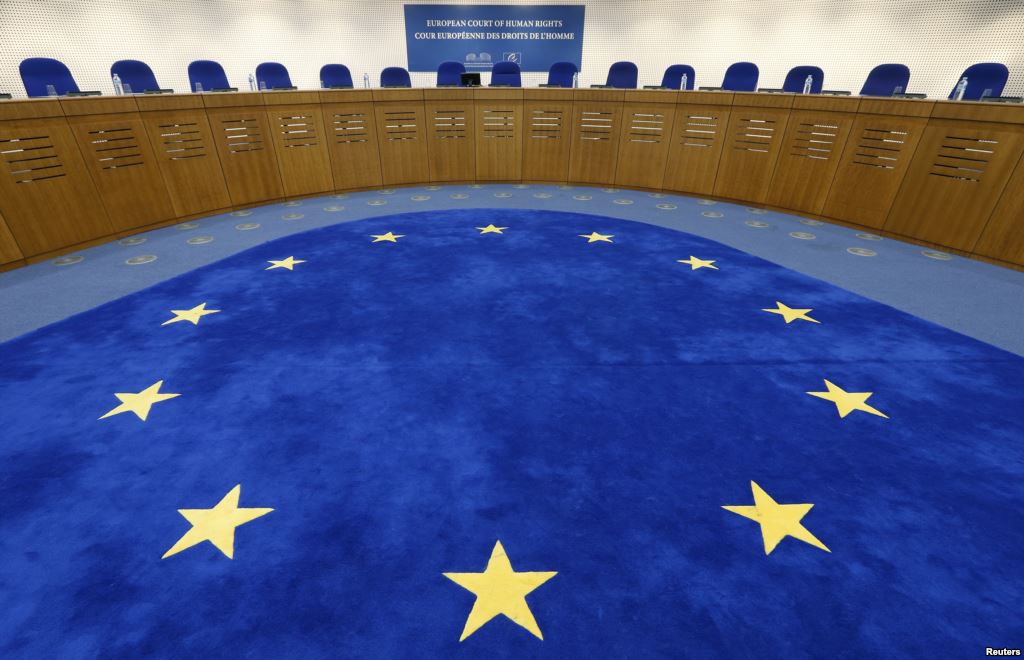 ECHR’S DOĞU PERINÇEK - SWITZERLAND DECISION (OFFICIAL FRENCH, UNOFFICIAL TURKISH)
ECHR’S DOĞU PERINÇEK - SWITZERLAND DECISION (OFFICIAL FRENCH, UNOFFICIAL TURKISH)
Hazel ÇAĞAN ELBİR 24.02.2014
-
25.01.2016
THE ARMENIAN QUESTION - BASIC KNOWLEDGE AND DOCUMENTATION -
12.06.2024
THE TRUTH WILL OUT -
27.03.2023
RADİKAL ERMENİ UNSURLARCA GERÇEKLEŞTİRİLEN MEZALİMLER VE VANDALİZM -
17.03.2023
PATRIOTISM PERVERTED -
23.02.2023
MEN ARE LIKE THAT -
03.02.2023
BAKÜ-TİFLİS-CEYHAN BORU HATTININ YAŞANAN TARİHİ -
16.12.2022
INTERNATIONAL SCHOLARS ON THE EVENTS OF 1915 -
07.12.2022
FAKE PHOTOS AND THE ARMENIAN PROPAGANDA -
07.12.2022
ERMENİ PROPAGANDASI VE SAHTE RESİMLER -
01.01.2022
A Letter From Japan - Strategically Mum: The Silence of the Armenians -
01.01.2022
Japonya'dan Bir Mektup - Stratejik Suskunluk: Ermenilerin Sessizliği -
03.06.2020
Anastas Mikoyan: Confessions of an Armenian Bolshevik -
08.04.2020
Sovyet Sonrası Ukrayna’da Devlet, Toplum ve Siyaset - Değişen Dinamikler, Dönüşen Kimlikler -
12.06.2018
Ermeni Sorunuyla İlgili İngiliz Belgeleri (1912-1923) - British Documents on Armenian Question (1912-1923) -
02.12.2016
Turkish-Russian Academics: A Historical Study on the Caucasus -
01.07.2016
Gürcistan'daki Müslüman Topluluklar: Azınlık Hakları, Kimlik, Siyaset -
10.03.2016
Armenian Diaspora: Diaspora, State and the Imagination of the Republic of Armenia -
24.01.2016
ERMENİ SORUNU - TEMEL BİLGİ VE BELGELER (2. BASKI)
-
AVİM Conference Hall 24.01.2023
CONFERENCE TITLED “HUNGARY’S PERSPECTIVES ON THE TURKIC WORLD"









